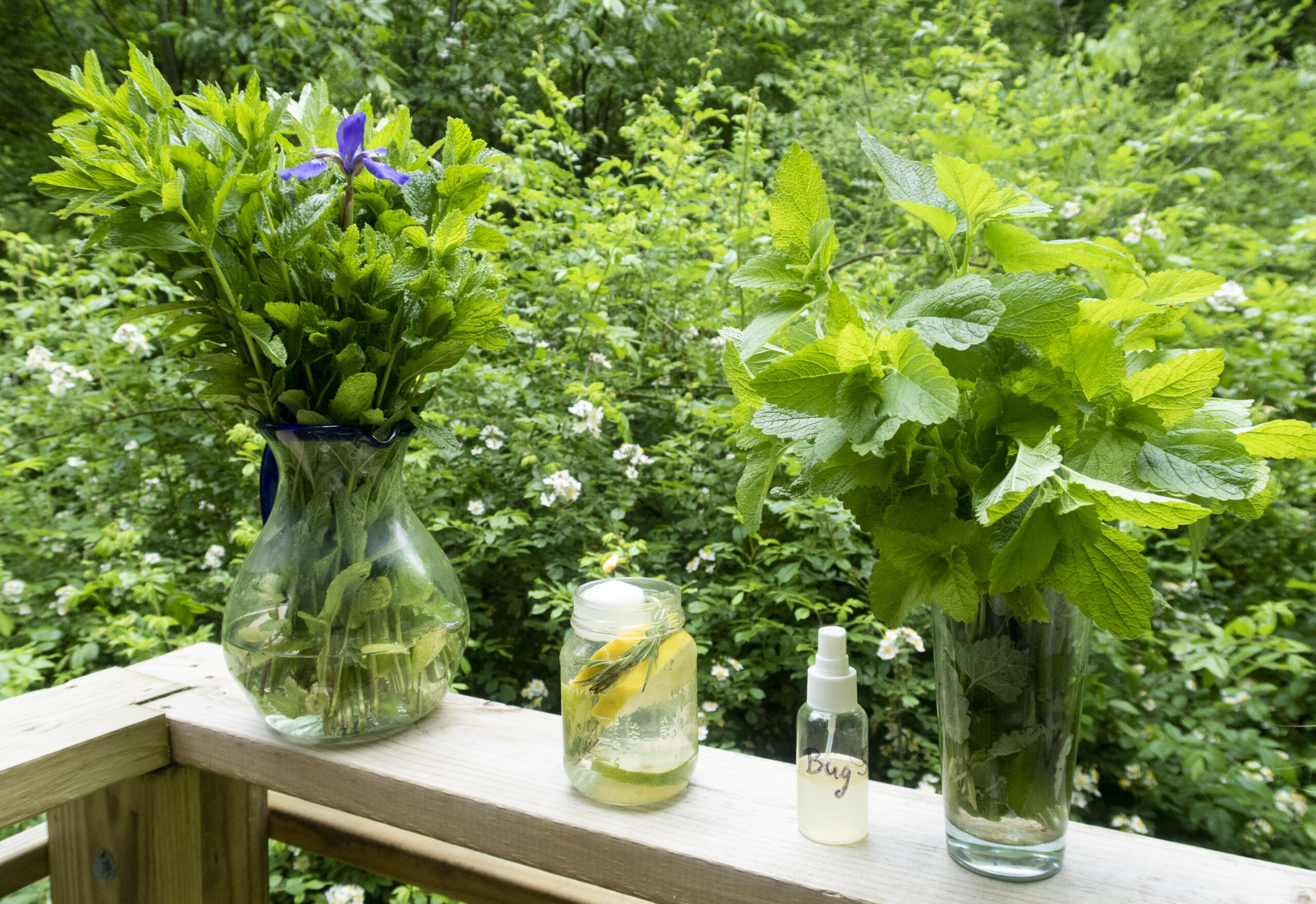MORGANTOWN — Those of us continuing to observe quarantine have begun our big migration: from house to porch. Morning coffee outdoors, computer work relocated from home office and kitchen table to deck and lawn chair and family dinners in the fresh air are making their way into our routines.
Insect bites quickly spoil any of these summer relocations, and other activities like hikes in the woods, bird watching, gardening, or walks around the block.
Chemical ingredients in commercial bug repellents may pose health risks, but making repellents at home can be quick, easy and even cheaper than buying conventional sprays.
In addition to causing annoying itching with their bites and stings, some bugs (looking at you, ticks) can carry diseases, so naturally repelling them both keeps you more comfortable and lowers health risks. Keeping a small bottle of spray handy when you head to porch, yard or farther afield isn’t hard — make a batch of repellent and divide it into several smaller spray bottles so you’ll never be without.
Quick and easy bug spray:
1/4 cup witch hazel
1/4 cup water (or vinegar)
15 drops citronella oil
5-15 drops of any or all of the following oils: Lavender, rose geranium or other scented geranium, rosemary, lemon and/or other herbs.
Mix ingredients and pour into a spray bottle. Shake before using, then apply liberally. Adding a little vegetable glycerin can help keep the oils, witch hazel and water or vinegar combined.
Different bugs are offended by different scents. Try making small batches of sprays, and vary the amounts of oils used to find the right blend to bug the bugs in your neighborhood.
Citronella, an oil from a variety of lemon grass, can be very effective at repelling mosquitos. Rose geranium is the oil for repelling ticks — in combination with proper clothing it can work well to keep these problematic arachnids at bay.
Essential oils are very useful for creating bug sprays. But always check the quality of oils, and buy from trusted brands, preferably organic. Many oils available are made from synthetic compounds, and marketed as natural. Never apply essential oils directly to your skin — always use a carrier oil or dilute in a mixture as described above.
If you want a bug repellent without essential oils, recipes for Four Thieves Vinegar used as a bug repellent abound online.
Modern Day Four Thieves Vinegar:
2 Tbsp fresh thyme
2 Tbsp fresh rosemary
2 Tbsp fresh sage
2 Tbsp fresh lavender
2 Tbsp fresh mint
4-8 cloves garlic
4 cups organic apple cider vinegar
Chop the herbs (marjoram and anise hyssop can also be added) and garlic, cover with the vinegar and steep for six weeks. To use as a bug spray dilute in water, at least 50/50.
Legend has it that thieves in France used a similar concoction to protect themselves from contracting the plague while looting from victims houses and graves.
While no one knows if this is myth or true, the concoction is sure to smell strongly enough to keep many things away, including bugs. It would likely help maintain social distancing as well. Bonus – you can use it in cooking and cleaning as well!
To keep bugs away from your deck or porch, try surrounding the area with bug repelling plants. Lemongrass, lemon balm and other lemon scented plants can deter mosquitoes. Mint, catnip, lavender and other herbs also help repel pests.
Keep these plants all around your porch, in pots and bouquets and use in combination with other repellant methods for a bug free outdoor experience.
For an attractive décor item which will send bugs flying away, add citrus slices, fresh rosemary or basil, water and a floating candle to a glass jar.
Flying biting insects also struggle to find prey on windy days. Add a fan to your outdoor sitting space to blow bugs away to calmer air.
Experiment with recipes, proportions and combinations of natural bug repellents untilyou find the perfect balance to create a bug bite-free summer.
Photos and article by Aldona Bird.
Tweet @DominionPostWV




